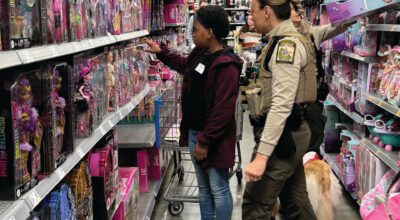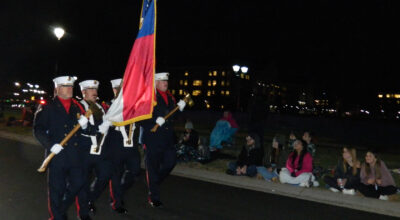University of Alabama at Birmingham researcher speaks to Civitans
Published 12:00 am Thursday, February 15, 2024
SALISBURY — Despite her degree as a clinical psychologist, Dr. Cassandra Newsom works as a bridge builder. Every day, she connects basic autism research using fish, mice and stem cells with clinical practice. Families whose children are diagnosed with intellectual or developmental disabilities come to her clinic for help.
Her bridgebuilding began in 2019 when she arrived at the Civitan Autism and Neurodevelopment Research Core at the University of Alabama at Birmingham. For five years, she has improved the lives of children, eased the concerns of their parents and applied basic research to practical day-to-day issues.
On Thursday, Newsom outlined her work for members of the Civitan Club of Salisbury. Newsom’s clinic and other research labs at the University of Alabama at Birmingham are supported by Civitan Clubs around the world. Also attending Newsom’s talk were Civitans from Granite Quarry, Faith, Rockwell, Woodleaf and Kernersville. Junior Civitans from Faith Academy, Salisbury High School and Salisbury Academy took time off from class to attend. Representatives from Partners in Learning and Smart Start Rowan, local groups interested in disability research, were there as well.
Three of her bridgebuilding interventions began with a question: What was the emotional impact on families when their child has repeated brain surgeries? Does reading change brain processes in developmentally disabled children? How can we reduce sleep apnea in children with spinal bifida? To help her answer those questions, Newsom first consulted a comprehensive database of children at the Birmingham research center. She checks to see if medications derived from basic research on stem cells, for instance, might solve or provide a way to study each specific practical problem.
Newsom listed 15 variables that might affect an autism diagnosis. Take gender and race for example. Boys are four times more likely to be diagnosed with autism than girls. Autism is more prevalent among Asians (3.3%) than Blacks (2.9%) or whites (2.4%). Thankfully, when the client is a young African American girl, the center’s data base has 38 percent females and 24 percent African Americans giving Newsom more data to examine to see what treatment options to try.
Two research conclusions Newsom shared with the Civitans were that not one but more than 1,000 genes interact to determine an autism diagnosis. She also said that negative experiences like poverty and discrimination can affect and diminish brain development. Several of her research studies have resulted in autism medications.
Newsom concluded her talk with her latest work on Pitt-Hopkins syndrome, a rare genetic neurological disorder. When she announced that she was working on PTHS, she received calls from around the world asking for results. “Drug treatments are now being tested,” she said and “results will be available this summer.”
The Civitan International Research Center was created in 1989 with a $20 million pledge from Civitan International. Since opening in 1992, the center has emerged as a world leader in the research and treatment of Intellectual and Developmental Disabilities which impact the lives of one in six people worldwide.
To learn more about the Civitan Club of Salisbury, go to www.salisburycivitan.org.







